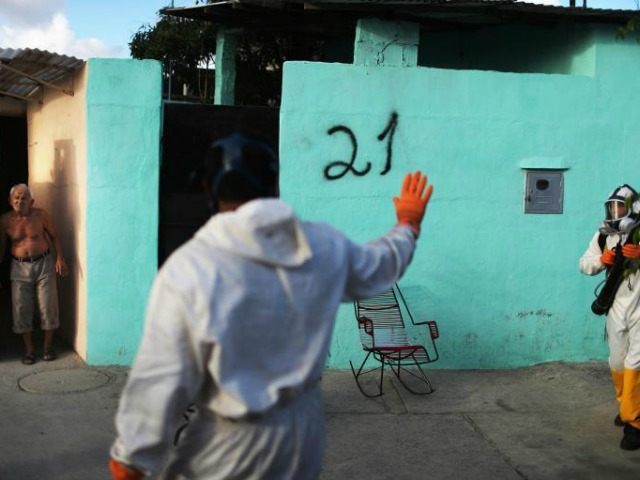The government of Brazil is urging calm as a robbery involving thieves disguised as government health workers on a routine inspection for Zika mosquitoes has taken over national headlines.
Three men stole cash and electronics from the home after they tied up the residents. A security camera showed “two men wearing Brazilian army uniforms and a third wearing the white jacket of a health inspector” entering the home and committing the crime.
“Thieves are using names from the Environmental Surveillance and Health Department to enter homes, claiming they are conducting preventative inspections to combat the Aedes aegypti mosquito,” explained the government in a statement. “These thieves usually act as a trio, some wearing a white coat and fake garments from the Brazilian army.”
Nicole Angels, coordinator of the Environmental Surveillance, told Jornal do lunch legitimate officials wear dark or beige vests, not white.
“This is the only robbery case,” he said. “There are several stories circulating on social networks about people stealing badges and vests from agents, but this in untrue. If people have any questions, you can call the monitoring service. We can confirm if it is an agent or not.”
He added, “We are very sorry this happened, but our job is to inspect the land. Without the resident’s endorsement, we cannot perform our work properly.”
The government has deployed 220,000 soldiers to work with 300,000 health workers who travel house-to-house to inform people about Zika and wipe out any mosquito breeding grounds.
On February 13, Brazilian officials, including President Dilma Rousseff, took to the streets for National Day Against Zika. Various politicians across the country made public appearances to raise awareness of Zika prevention techniques, including the elimination of still water pools and wearing long-sleeved clothing.
“Putting more troops on the streets is worth trying, and I hope it has a positive impact,” stated Celso Granato, an infectious disease specialist at the Federal University of São Paulo. “But this is something that should have been done years ago.”
O Globo reported the Ministry of Health “stressed” that officials continue to gather information about Aedes aegypti, but residents in poor cities like Rocinha and affluent neighborhoods like Alto Leblon have noticed standing water and neglect from state workers.
“In the last two years, no one from the city has done mosquito surveys,” said Ednaldo, who has worked in the neighborhood for 27 years. “The agents arrive with a piece of paper, sign it, and then do nothing. Previously they put larvicidal powder into the drains and saucers of plants. But there are more. If you do a survey on the street, you will find many mosquito breeding grounds.”
Ednaldo also criticized the residents in the neighborhood. “Dwellers in my building let water accumulate in saucers,” he said. “People here are the type who ask to save water, but also allow a child to play two hours outside with the hose. It is carelessness.”
Community organizer José Martins has not witnessed any inspections from state workers in Rocinha.
“For decades we have been advocating for improvements in sanitation as the number one priority for public investments here while the government has insisted on flashier interventions that do not save money on healthcare costs down the line,” he vented. “Street carnival parades pass through here as well. People live here where there is already a higher instance of tuberculosis and other diseases.”
The Brazilian government will fine any private property owner who does not allow public health workers onto the site. If the workers find the property “essential for disease containment,” they will seek police help if the owner says no.

COMMENTS
Please let us know if you're having issues with commenting.